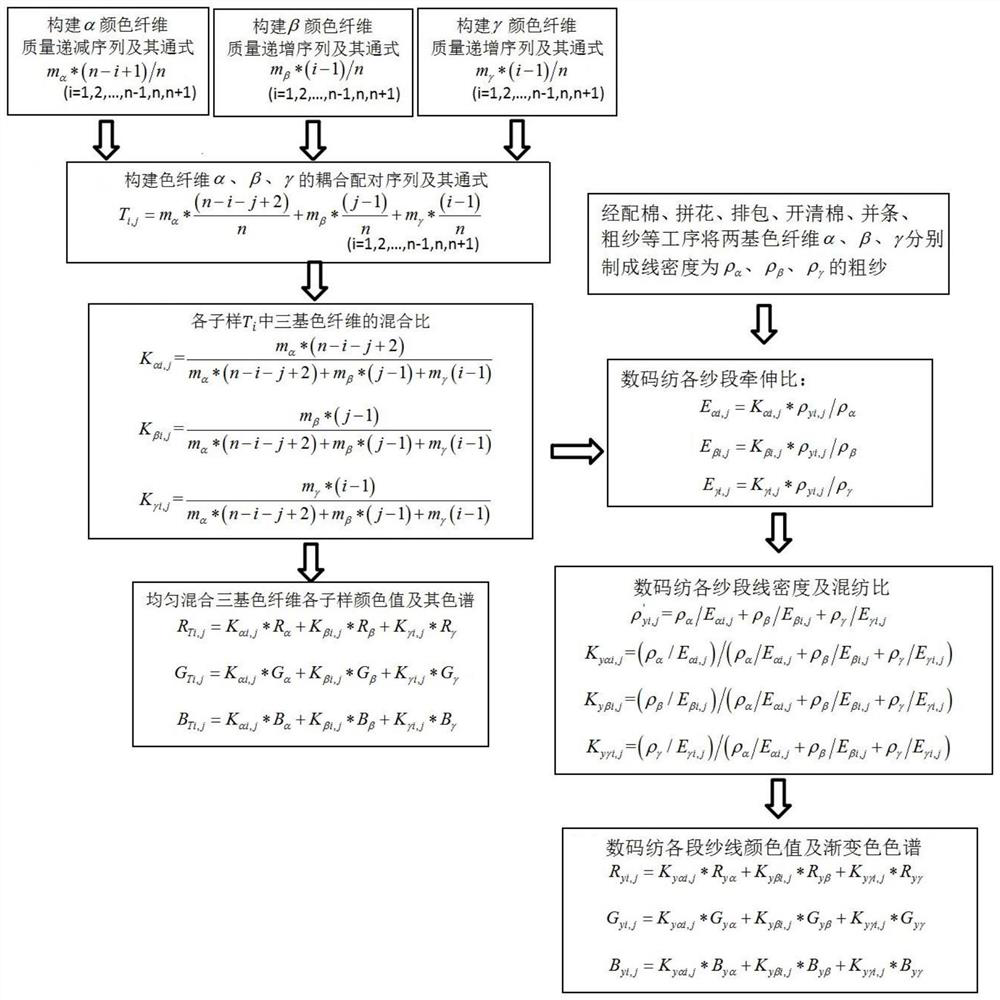A Method for Gradient Yarns Based on Discrete Gradient Chromatography Based on Coupling and Blending of Three Primary Color Fibers
A technology of three primary colors and fibers, which is applied in spinning machines, yarns, textiles and papermaking, etc., can solve the problem of not being able to obtain continuous color gradients, and achieve the effect of secondary color matching
- Summary
- Abstract
- Description
- Claims
- Application Information
AI Technical Summary
Problems solved by technology
Method used
Image
Examples
Embodiment Construction
[0054] The specific implementation manners of the present invention will be further described in detail below in conjunction with the accompanying drawings.
[0055] The present invention designs a method for coupling and blending three-color fibers based on discrete gradient chromatograms to produce gradient yarns, which is used to obtain three-color fibers based on the combination of different coupling mass ratios and coupling fiber chromatograms for the three-color fibers. Corresponding coupling fibers, such as figure 1 As shown, it specifically includes the following steps.
[0056] Step A. For the coupling mass ratio of one of the color fibers α, according to the preset number of decrements n, decrease in equal proportions from 100% to 0%, and obtain the coupling mass ratio of the α color fiber under each descending order number, and obtain The general formula for the coupling mass ratio of the α-color fiber corresponding to the descending order number is as follows:
...
PUM
 Login to View More
Login to View More Abstract
Description
Claims
Application Information
 Login to View More
Login to View More - R&D
- Intellectual Property
- Life Sciences
- Materials
- Tech Scout
- Unparalleled Data Quality
- Higher Quality Content
- 60% Fewer Hallucinations
Browse by: Latest US Patents, China's latest patents, Technical Efficacy Thesaurus, Application Domain, Technology Topic, Popular Technical Reports.
© 2025 PatSnap. All rights reserved.Legal|Privacy policy|Modern Slavery Act Transparency Statement|Sitemap|About US| Contact US: help@patsnap.com



